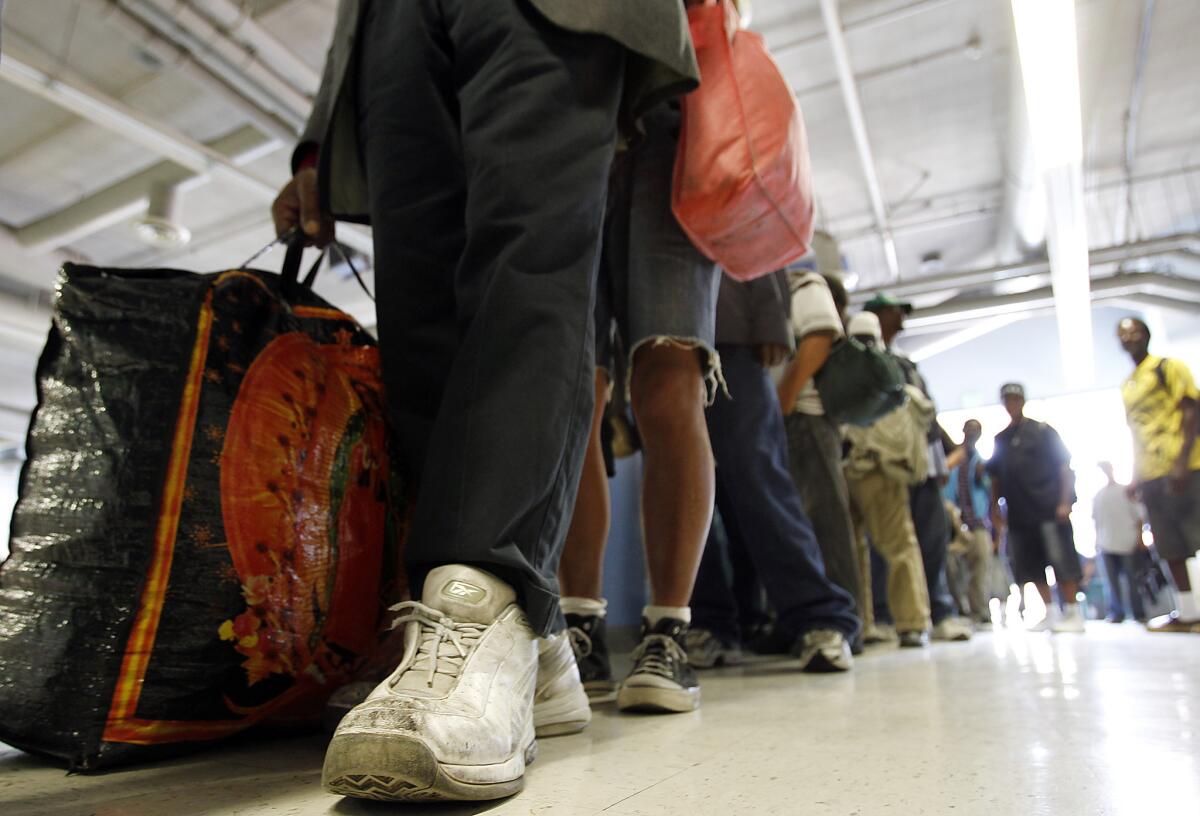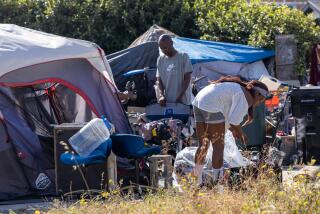Poverty kept rising in Los Angeles after downturn, new data show

Poverty continued creeping upward in the Los Angeles area last year, long after the declared end of the recession, new estimates from the U.S. Census Bureau show.
The numbers are another sign of continued suffering after the economic downturn: More than 17% of people in the Los Angeles, Long Beach and Santa Ana metropolitan area lived below the poverty line last year. That number rose year by year since 2007, when roughly 13% lived in poverty.
Economic hardship is even more common within the city of Los Angeles, where the share of people living in poverty rose from 18.5% to more than 23% between 2007 and 2012, the new figures show.
“What is significant and new is that poverty is not rising and falling with the rest of the economy, it is just continuing to rise,” wrote Bill Parent, associate dean of the UCLA Luskin School of Public Affairs. “This is a terrible ‘new normal.’ The rising tide isn’t lifting all the boats.”
The newly released estimates, based on the American Community Survey, also reveal that the Los Angeles area remained in worse straits than other urban hubs in California.
For example, poverty rates in the region are far higher than those in the metropolitan areas circling San Francisco and San Jose and their nearby cities, where the poverty rates fell just short of 12% and 11%, respectively. Poverty in and around Los Angeles also exceeded the California average.
Researchers and nonprofits offered several reasons for the continued increase. Recent analysis by UCLA Luskin School of Public Affairs researchers found that the Los Angeles metropolitan area suffered deeper job losses than comparable areas in California, such as San Diego and San Jose. The jobs that have returned, in turn, pay less than those that disappeared.
“This has been a shallow recovery, especially in the Los Angeles area,” said Michael Flood, chief executive of the Los Angeles Regional Food Bank. “There isn’t much job creation. That’s keeping a lot of people in a situation where they’re having a hard time.”
The continued woes did not surprise some researchers: Los Angeles has historically taken longer to recover from recessions than other metropolitan areas, partly due to “a very large number of folks working low-wage jobs,” said Patrick Burns, senior researcher at the Economic Roundtable.
“In this recovery it seems particularly hard for people with low to average labor market skills to gain traction,” said Daniel Flaming, president of the Economic Roundtable. “Demand for many services still hasn’t picked up.”
Manuel Pastor, director of USC’s Program for Environmental and Regional Equity, said the rising numbers showed that Los Angeles could benefit from the minimum wage hike passed by California legislators this year, along with immigration reforms expected to help boost immigrants’ earnings.
“This suggests that [Los Angeles Mayor Eric Garcetti] has a lot of work cut out for him,” Pastor added in an email.
ALSO:
Human bones found near missing Burbank man’s Lexus
Garcetti honors former mayors for pushing LAX upgrades
Tearful porn actress speaks out about HIV risk in adult film industry
More to Read
Sign up for Essential California
The most important California stories and recommendations in your inbox every morning.
You may occasionally receive promotional content from the Los Angeles Times.










